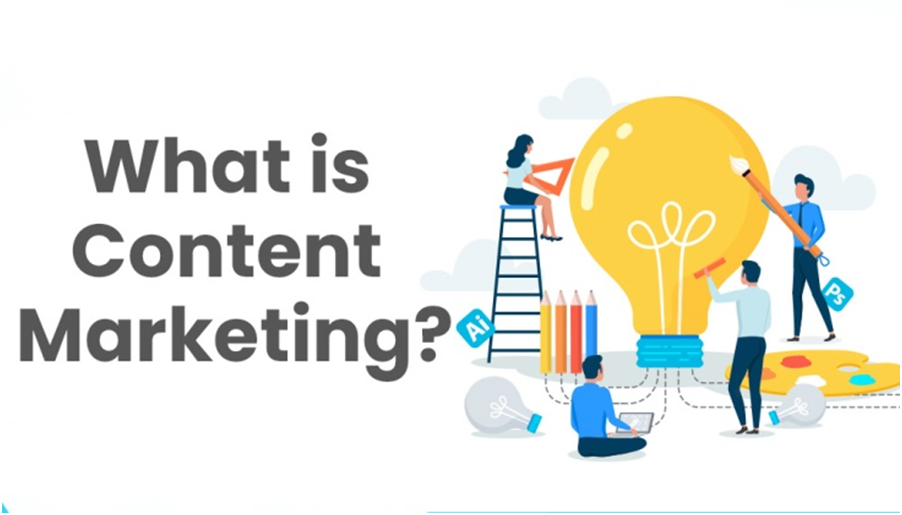Why Your Business Needs a Content Marketing Plan Right Now

In today’s highly competitive digital environment, content marketing has emerged as the backbone of successful business strategies. It is no longer optional—it’s a critical tool for any company aiming to thrive, expand, and connect meaningfully with its audience. While traditional advertising methods focus on selling, content marketing centers on providing value, building trust, and fostering long-term relationships with potential and existing customers.
This guide explores the reasons your business needs a content marketing plan right now, the benefits it offers, and how you can create a plan tailored to your objectives.
What is Content Marketing?
At its core, content marketing is a strategic approach to creating and distributing valuable, relevant, and engaging content to attract and retain a clearly defined audience. Unlike direct advertising, content marketing doesn’t focus solely on promoting products or services. Instead, it aims to educate, inform, entertain, or solve the problems of your target audience, encouraging them to take actions that benefit your business.
Common forms of content marketing include:
- Blogs and articles to address customer pain points.
- Videos that entertain or explain concepts visually.
- Infographics summarizing complex data.
- Social media posts to engage and inform followers.
- Email newsletters to nurture leads and retain customers.
Why is Content Marketing Crucial For Your Business?
1. Build a Recognizable Brand
Your content is often the first point of contact between your business and potential customers. A strong content marketing strategy helps establish your brand identity and ensures that your audience associates your business with quality, reliability, and trustworthiness.
For example, sharing blogs, case studies, and video tutorials relevant to your industry can position your brand as a thought leader. Over time, your brand becomes synonymous with authority and expertise, attracting loyal followers.
2. Drive Organic Traffic
Search engines prioritize high-quality content that aligns with user intent. A well-optimized content marketing plan, incorporating SEO practices, can significantly boost your website’s organic traffic. When you consistently create content tailored to the keywords and questions your audience is searching for, your website is more likely to rank higher in search engine results.
This increased visibility not only drives traffic but also attracts an audience that’s genuinely interested in your offerings.
3. Support Lead Generation
Every business aims to attract qualified leads, and content marketing is one of the most effective ways to do so. By offering valuable gated content—like eBooks, whitepapers, or exclusive webinars—in exchange for contact information, you can capture leads who are already interested in your expertise.
Content tailored to the buyer’s journey further nurtures these leads, moving them closer to making a purchase.
4. Strengthen Customer Relationships
Content marketing extends beyond attracting new customers. It’s equally about retaining existing ones. Engaging and informative content ensures your audience remains connected to your brand over time. Email campaigns, helpful tutorials, and personalized updates can foster loyalty, turning customers into repeat buyers and advocates.
5. Enhance Social Media Engagement
Social media platforms thrive on compelling content. Sharing valuable blogs, videos, or infographics on platforms like Instagram, LinkedIn, or Facebook can amplify your reach and engagement. When users share your content, it not only drives traffic to your site but also increases your brand’s visibility.
6. Improve Conversion Rates
A seamless and user-focused content strategy can guide potential customers through the buyer’s journey. Educational blogs and videos during the awareness phase, followed by case studies or testimonials during the consideration phase, help build trust and confidence, ultimately leading to higher conversion rates.
7. Deliver Long-Term Value
Unlike traditional ads that lose their impact once the campaign ends, content marketing provides long-term benefits. A well-written blog or an engaging video can continue to attract traffic, generate leads, and boost engagement for months or even years after its initial publication.
Steps to Create a Winning Content Marketing Plan
1. Define Your Objectives
What do you want to achieve with content marketing? Whether it’s increasing website traffic, generating leads, boosting sales, or building brand awareness, having clear objectives will guide your strategy and help you measure success.
2. Know Your Audience
Understanding your audience is the cornerstone of an effective content strategy. Create detailed buyer personas based on:
- Demographics: Age, gender, location, income.
- Behavior: Purchase habits, online activity.
- Challenges: Pain points and problems your business can solve.
This insight ensures that your content resonates with your target audience and addresses their needs.
3. Develop a Content Strategy
Once you know your goals and audience, plan your content accordingly:
- Content types: Blogs, videos, infographics, eBooks, etc.
- Channels: Decide where you’ll publish—your website, social media, email, or third-party platforms.
- Themes: Choose topics that align with your audience’s interests and your business objectives.
4. Create a Content Calendar
Consistency is key in content marketing. A content calendar helps you plan and schedule content in advance. Include:
- Key dates (holidays, events, product launches).
- Publishing schedules (daily, weekly, or monthly posts).
- Content themes and formats.
5. Focus on SEO
Optimizing your content for search engines ensures it gets discovered. Conduct keyword research to identify relevant terms your audience is searching for and integrate them naturally into your content. Pay attention to on-page SEO elements like headers, meta descriptions, and internal links.
6. Use Analytics to Refine Your Strategy
Track the performance of your content using tools like Google Analytics or social media insights. Monitor metrics such as:
- Traffic.
- Engagement (likes, shares, comments).
- Conversion rates.
- Lead generation.
Use these insights to improve and refine your strategy over time.
The ROI of Content Marketing
Content marketing is not just effective—it’s cost-efficient. Unlike paid advertising, which requires constant investment, content marketing creates assets that continue to deliver value long after they’re created. For example:
- A single blog post can drive traffic for years with proper SEO.
- An engaging video can become a centerpiece of your social media campaigns.
- A downloadable guide can generate leads indefinitely.
This long-term ROI makes content marketing an invaluable investment for any business.
Trends Shaping Content Marketing in 2025
To stay ahead in the digital marketing game, businesses must embrace emerging trends in content marketing. Here are some to watch in 2025:
1. AI-Powered Content
Artificial intelligence tools like ChatGPT and Jasper are revolutionizing content creation by generating ideas, drafting content, and optimizing for SEO.
2. Voice Search Optimization
With voice search gaining popularity, optimizing content to answer conversational queries is becoming essential.
3. Interactive Content
Polls, quizzes, and interactive infographics engage users and boost retention.
4. Sustainability-Focused Content
Consumers increasingly prefer brands that prioritize sustainability. Sharing content about your business’s eco-friendly practices can resonate with this audience.
5. Micro-Content for Short Attention Spans
Short-form content, like TikToks or Instagram reels, continues to dominate. Businesses must adapt by creating quick, engaging pieces that capture attention instantly.
Conclusion
Content marketing is no longer a luxury; it’s a necessity for any business aiming for sustainable growth. A well-thought-out content marketing plan helps you attract, engage, and retain customers while delivering long-term value. By understanding your audience, creating high-quality content, and staying consistent, you can position your brand as an industry leader.
The time to act is now. With a solid content marketing strategy, your business can thrive in the competitive digital landscape, build lasting relationships with customers, and achieve measurable success.





